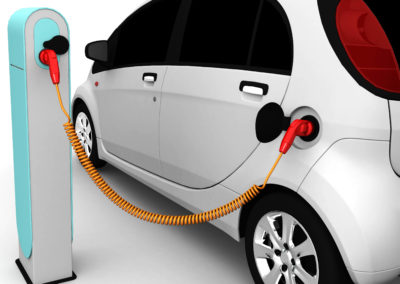The new normal may need new infrastructure
Working from home and staying local has become the norm for huge swathes of the population, and increasingly companies are looking at a future where remote-working employees are the expectation, not the exception.
Personal connections need physical systems
Keeping employees connected – through high-powered internet and secure cloud-based systems – is the quick win where offices aren’t being used. But what will the long-term impact on national infrastructure be?
Grid-based electricity production has been tested, with the usual supply networks (power station, electricity pylons, regional sub-stations and distribution to residential and commercial purposes) being challenged and more locally-produced renewable energy leading to smarter local networks. But will they have the physical capacity to cope with such a change to our lifestyles? (Read about energy production and more sustainable solutions here).
Roads, railways and other transport systems will need to adapt, and quickly, to different user-needs – if more people are working from home, there’s less need to invest in roads, for example, as the President of the AA, Edmund King, remarked recently. So what is the likely impact of COVID-19 on the transport sector and what are the solutions? (You can read more here).
Broadband, and the hastening of the rollout of 5G, will be crucial to ensuring countries can quickly maintain and increase productivity. But how can the work be carried out effectively, but securely?
Of course, no population can be sustained without a reliable water supply, either, and the Centre for Systems Engineering and Innovation brings together expert researchers and modellers from a range of backgrounds to look specifically at the underlying infrastructure challenges we face now and in the future as our lifestyles change across the world.
Rethinking urban planning and design
What about the change to how public services are delivered, such as major community hubs like schools and hospitals? Virtual classrooms and appointments-by-app may change how we look at how towns and cities are planned – taking pollution and societal impact into consideration when identifying developments and usage. What if the centres and hubs can be designed to be modified according to emerging trends or crises across a population?
Online shopping has shown how resilient, or how lacking, some aspects of the retail sector are – what will be the future of the traditional high street? And what will new homes and developments look like if they’re to be designed for both life and work?
Sustainable investment to keep the world moving, keeping populations fed (see our showcase on food security here) and ensuring economic development (check out our experts’ ideas about ways to recover in a post-pandemic world), while not compromising great strides we’ve made towards environmentally-sensitive policies and practices will be determined by the infrastructure that we put in place.
If we can make that infrastructure smarter, more resilient and more sustainable, then we will collectively be better-placed to emerge as a stronger society, and authorities that invest in infrastructure improvements now will reap benefits later; it’s just a matter of taking brave, data-based decisions with an element of future-gazing and riding the current political and social challenges.
Powering our future will take a large amount of investment into cleaner, more sustainable energy resources. Learn more about our expert insights on energy policy, behaviour and specific examples of where Imperial’s researchers have enabled companies to achieve their objectives.
Monitoring power grids in real time
As supplies move from major power stations and national grids to local and private energy creation and storage facilities, keeping track of acute issues is vital to ensure that homes, houses and districts stay online. A monitoring technology for smart grids will empower more resilient network management.
Rural energy with sustainable investment
Oorja, founded by Chemical Engineer Dr Clementine Chambon, has revolutionised local energy production and security in rural communities in India – micro-financed initiatives mean that communities can access resources that would otherwise not be financially viable for major companies’ investment.
Underpinning the transport network
Both the Centre for Transport Studies and the Transport Strategy Centre in the Department for Civil Engineering provide different insights to international authorities into the implications of transport infrastructure management
Find out how Imperial can help you with your specific needs be they immediate or a longer term goal.
Planning the deployment of future energy systems
Alongside the unparalleled research into a variety of new and sustainable energy sources, the Energy Futures Lab at Imperial also looks at how these sources can be adopted and implemented into ageing infrastructure, or used to inspire the design of new systems and ways of looking at the energy sector as a whole.
Visualise the data to make decisions
Various groups around the College have made effective use of the world-leading Data Observatory at Imperial, from exploring the energy requirements of a region through to monitoring real-time public transport use and analysis.
Reducing environmental impacts of urban development
Urban development increasingly recognises the value of green spaces for various aspects, including reducing surface water run off and flooding. This special concrete mix allows the grey parts of town to allow water to move into underground aquifers or sewers without compromising paving quality.
Who to contact:

Anne Freitag
Engagement Manager
For Chemistry, Chemical Engineering, Earth Sciences, Bio Sciences, Life Sciences and Materials




